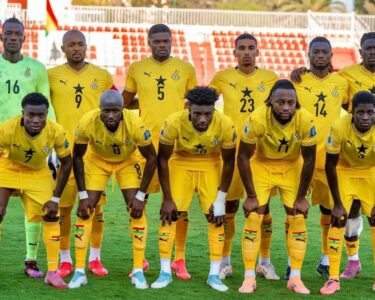In a major development that could reshape the power dynamics in global cricket, the Board of Control for Cricket in India (BCCI) and the England and Wales Cricket Board (ECB) have reportedly aligned to block the launch of a Saudi Arabia-backed T20 league worth ₹3,442 crore (approximately USD 410 million). The proposed league, spearheaded by Saudi interests, aimed to emerge as a global cricketing powerhouse, rivaling existing tournaments like the Indian Premier League (IPL) and The Hundred.
According to media reports, the Saudi initiative was designed to bring international stars together in a high-profile T20 tournament, leveraging the kingdom’s immense financial resources and increasing involvement in global sports. With the success of Saudi Arabia’s investments in football through its Public Investment Fund (PIF), many observers expected cricket to be the next frontier. The proposed league was reportedly being planned with significant incentives for international players, potentially disrupting existing cricket calendars and loyalties.
However, it now appears that two of cricket’s most influential governing bodies — the BCCI and the ECB — have informally agreed to resist the development of this new Saudi-backed league, fearing it could destabilize the global cricket ecosystem and undercut the commercial dominance of existing domestic leagues, particularly the IPL.
Strategic Concerns and Market Protection
Sources indicate that both boards view the Saudi league as a potential threat to their long-term cricketing and commercial interests. The IPL, which generates billions in broadcasting and sponsorship revenue, remains the crown jewel of franchise T20 cricket. Any serious competitor offering similar financial packages and exposure could tempt players, broadcasters, and sponsors away — something the BCCI is keen to prevent.
The ECB, too, has reportedly grown concerned about the potential dilution of its brand, especially at a time when The Hundred — England’s own short-format league — is still working to establish itself in the crowded T20 marketplace. For both boards, maintaining control over the global T20 narrative is not just a matter of pride, but of financial sustainability and strategic influence.
Player Participation and Scheduling Pressure
A major concern for cricket boards worldwide is the increasing pressure on international calendars. With leagues sprouting in South Africa, the UAE, the USA, and now a possible entrant from Saudi Arabia, top players are finding themselves torn between national commitments and lucrative league opportunities. The addition of another ultra-rich tournament could push the balance further toward club-style cricket, at the expense of international tours and bilateral series.
The BCCI has historically restricted Indian players from participating in foreign leagues — a policy likely to be strictly enforced in this context. The ECB may not have such formal restrictions, but the board’s influence over centrally contracted players gives it leverage to dissuade participation through scheduling controls and selection incentives.
Geopolitics Meets Cricket
Saudi Arabia’s push into cricket is part of its broader “Vision 2030” strategy to diversify its economy and promote sports and entertainment as key pillars of national identity. The kingdom has already hosted international boxing events, invested heavily in football clubs and leagues, and is a driving force behind the LIV Golf tour — a competitor to the PGA Tour that caused major disruptions in the golfing world.
The attempt to replicate such a model in cricket may have seemed inevitable, but the resistance from powerful boards like the BCCI and ECB shows the traditional powers are not ready to relinquish control.
Conclusion
While formal announcements are yet to be made, insiders suggest that a coordinated effort between the BCCI and ECB is already in motion to limit the legitimacy and operational scope of any Saudi-backed T20 competition. Whether this resistance succeeds in the long run will depend not only on cricket diplomacy but also on how aggressively Saudi Arabia chooses to pursue its ambitions.
For now, the message from cricket’s power centers is clear: the pitch may be global, but the game is still under traditional control.







